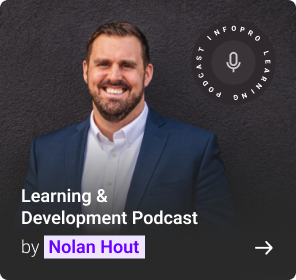In sales training, intent plays a crucial role. Success in sales is not solely about being the most knowledgeable or smartest person in the room. Instead, success stems from a clear focus on intent—enabling the learner’s success, which drives their clients’ business success. Effective sales training centers on the learner and their specific context. This includes the dynamics of their sales conversations, business environment, and revenue generation factors. Sales professionals work in high-pressure settings, requiring agility, authenticity, and the ability to navigate diverse situations. Consequently, training that merely transfers knowledge or provides generic awareness is insufficient.
A key consideration in sales training is understanding the demands and expectations of sales professionals. Here are three myths debunked for sales professionals:
Myth 1: Short Attention Spans
The myths surrounding sales professionals mischaracterize what they need, such as that salespeople are widely considered to have short attention spans. But salespeople are busy, highly focused professionals who value relevance and value. They unfollow or stop engaging with whatever does not bring them closer to winning deals.
Research suggests that early moments are critical for grabbing a learner’s attention. Sales professionals must view immediate value in what content is shown to them. Engagement will slip if those first few moments are spent discussing irrelevant details. Learners are not impatient people—they think in practical, results-oriented terms.
Sales training is effective only when it shares knowledge and practical tools that allow learners to take knowledge back to their own practice, complementing existing skills and knowledge of sales. Your training needs to be customized to suit the context and priorities of the learner to make the learning experience meaningful and impactful. This isn’t about a short attention span—it’s about low patience for wasted time from sales professionals.
Myth 2: Salespeople Are Driven by Prizes Alone
There’s a widely held myth that salespeople are “coin-operated” — show them a prize, gift card, or treat, and they leap into action. Incentives like these are wonderful, but the reality is much more complex. Salespeople are motivated not just by external rewards but by success.
When you offer them the tools, strategies or training that they truly need to follow through, you will earn their respect and engagement. An effective salesperson will value anything that provides progress toward their goals; they will return when they see results.
It’s also important to understand that salespeople are risk-averse. They hesitate to dedicate time and energy toward something that may not produce concrete outcomes. That’s why bullet-proofing actionable knowledge is so vital. Give salespeople things they can do right away and get success. As soon as they see that success, the training is validated further. When you know what salespeople want, you can build learning experiences that will stick longer than a mere prize.
Myth 3: Rethinking Gamification for Sales Professionals
Here is another myth about gamification: the myth that “all salespeople love competition.” All sales professionals are first-place seekers and will do whatever it takes to do well on the leaderboards. But the reality is more complex. Salespeople are often highly motivated by success but also extremely risk averse. For others, the fear of not placing first is enough to keep them from competing.
Due to this duality, L&D leaders need to create a safe space for learning. Sales training involves practice and role-play, with peers and instructors offering direction. It gives participants a chance to build confidence and mastery in a low-pressure setting, effectively connecting theory to real-world applications.
Conclusion
Sales training is around breaking myths and giving us a reality check of how the sales glam profession looks. It demands a learner-centered approach emphasizing implementable insights and relevance to life. Training programs can set salespeople up for success by Focusing on their specific challenges — their desire for relevance, motivation beyond rewards and their tempered risk and competitive stance. This can extend beyond just imparting knowledge and creating a setting where sales teams can flourish while deftly navigating and impacting the business.
We conducted a webinar titled ‘Decode the Secrets of Successful Sales Training’ featuring Carol Cohen, Vice President of Sales Enablement and Learning Strategy at Infopro Learning. This session is for those sales leaders and sales enablement managers who face the challenge of identifying the appropriate sales training and enablement solutions to build an all-important revenue team. This is part of a concerted effort to help sales teams be armed with tactical activities to reduce time to closing deals, identify expansion sales opportunities, and build long-lasting relationships with loyal customers. Watch the replay here.





